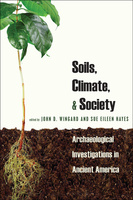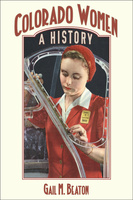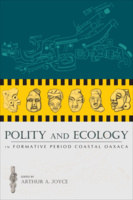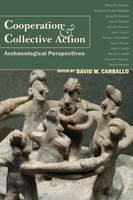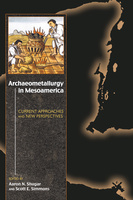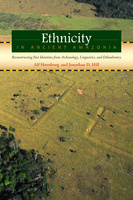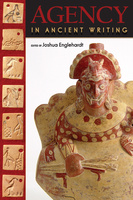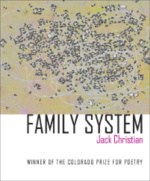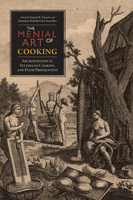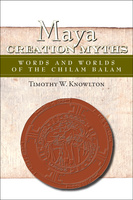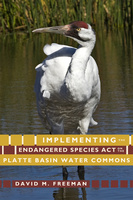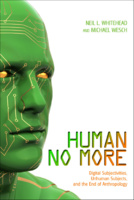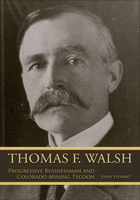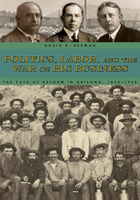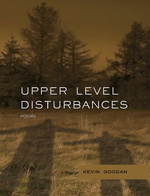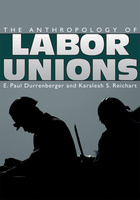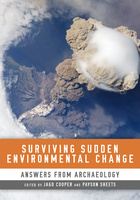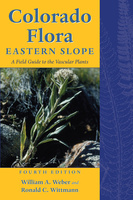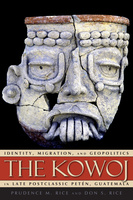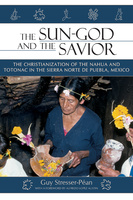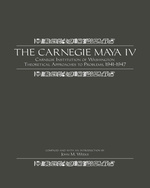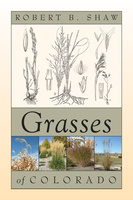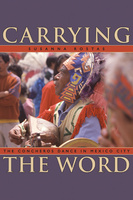Showing 331-360 of 509 items.
Maya Daykeeping
Three Calendars from Highland Guatemala
University Press of Colorado
In Maya Daykeeping, three divinatory calendars from highland Guatemala - examples of a Mayan literary tradition that includes the Popul Vuh, Annals of the Cakchiquels, and the Titles of the Lords of Totonicapan - dating to 1685, 1722, and 1855, are transcribed in K'iche or Kaqchikel side-by-side with English translations. Calendars such as these continue to be the basis for prognostication, determining everything from the time for planting and harvest to foreshadowing illness and death. Good, bad, and mixed fates can all be found in these examples of the solar calendar and the 260-day divinatory calendar.
Soils, Climate and Society
Archaeological Investigations in Ancient America
Edited by John D. Wingard and Sue Eileen Hayes
University Press of Colorado
Much recent archaeological research focuses on social forces as the impetus for cultural change. Soils, Climate and Society, however, focuses on the complex relationship between human populations and the physical environment, particularly the land--the foundation of agricultural production and, by extension, of agricultural peoples.
Santa Rita del Cobre
A Copper Mining Community in New Mexico
University Press of Colorado
Originally known as El Cobre, the mining-military camp of Santa Rita del Cobre ultimately became the company town of Santa Rita, which after World War II evolved into an independent community. From the town's beginnings to its demise, its mixed-heritage inhabitants from Mexico and United States cultivated rich family, educational, religious, social, and labor traditions. Extensive archival photographs, many taken by officials of the Kennecott Copper Corporation, accompany the text, providing an important visual and historical record of a town swallowed up by the industry that created it.
Colorado Women
A History
University Press of Colorado
Colorado Women is the first full-length chronicle of the lives, roles, and contributions of women in Colorado from prehistory through the modern day. A national leader in women's rights, Colorado was one of the first states to approve suffrage and the first to elect a woman to its legislature. Nevertheless, only a small fraction of the literature on Colorado history is devoted to women and, of those, most focus on well-known individuals.
Polity and Ecology in Formative Period Coastal Oaxaca
Edited by Arthur A. Joyce
University Press of Colorado
Encapsulating two decades of research, <i>Polity and Ecology in Formative Period Coastal Oaxaca</i> is the first major treatment of the lower Río Verde region of Oaxaca, investigating its social, political, and ecological history. Tracing Formative period developments from the earliest known evidence of human presence to the collapse of Río Viejo (the region's first centralized polity), the volume synthesizes the archaeological and paleoecological evidence from the valley.<
Cooperation and Collective Action
Archaeological Perspectives
Edited by David M. Carballo
University Press of Colorado
Past archaeological literature on cooperation theory has emphasized competition's role in cultural evolution. As a result, bottom-up possibilities for group cooperation have been under theorized in favor of models stressing top-down leadership, while evidence from a range of disciplines has demonstrated humans to effectively sustain cooperative undertakings through a number of social norms and institutions. Cooperation and Collective Action is the first volume to focus on the use of archaeological evidence to understand cooperation and collective action.
Archaeometallurgy in Mesoamerica
Current Approaches and New Perspectives
Edited by Aaron N. Shugar and Scott E. Simmons
University Press of Colorado
Presenting the latest in archaeometallurgical research in a Mesoamerican context, Archaeometallurgy in Mesoamerica brings together up-to-date research from the most notable scholars in the field.
Ethnicity in Ancient Amazonia
Reconstructing Past Identities from Archaeology, Linguistics, and Ethnohistory
Edited by Alf Hornborg and Jonathan D. Hill
University Press of Colorado
A transdisciplinary collaboration among ethnologists, linguists, and archaeologists, Ethnicity in Ancient Amazonia traces the emergence, expansion, and decline of cultural identities in indigenous Amazonia.
Dinéjí Na`nitin
Navajo Traditional Teachings and History
University Press of Colorado
Traditional teachings derived from stories and practices passed through generations lie at the core of a well-balanced Navajo life. These teachings are based on a very different perspective of the physical and spiritual world than that found in general American culture. Dinéjí Na`nitin is an introduction to traditional Navajo teachings and history for a non-Navajo audience, providing a glimpse into this unfamiliar domain and illuminating the power and experience of the Navajo worldview.
Agency in Ancient Writing
Edited by Joshua Englehardt
University Press of Colorado
Individual agents are frequently evident in early writing and notational systems, yet these systems have rarely been subjected to the concept of agency as it is traceable in archeology. Agency in Ancient Writing addresses this oversight, allowing archeologists to identify and discuss real, observable actors and actions in the archaeological record.
The Menial Art of Cooking
Archaeological Studies of Cooking and Food Preparation
Edited by Sarah R. Graff and Enrique Rodríguez-Alegría
University Press of Colorado
<i>The Menial Art of Cooking</i> shows how cooking activities provide a window into other aspects of society and, as such, should be taken seriously as an aspect of social, cultural, political, and economic life.<
Maya Creation Myths
Words and Worlds of the Chilam Balam
University Press of Colorado
There is no Classical Yucatecan Maya word for "myth." But around the close of the seventeenth century, an anonymous Maya scribe penned what he called u kahlay cab tu kinil, "the world history of the era," before Christianity came to the Peten. He collected numerous accounts of the cyclical destruction and reestablishment of the cosmos; the origins of gods, human beings, and the rituals and activities upon which their relationship depends; and finally the dawn of the sun and the sacred calendar Maya diviners still use today to make sense of humanity's place in the otherwise inscrutable march of time. These creation myths eventually became part of the documents known today as the Books of Chilam Balam.
Maya Creation Myths provides not only new and outstanding translations of these myths but also an interpretive journey through these often misunderstood texts, providing insight into Maya cosmology and how Maya intellectuals met the challenge of the European clergy's attempts to eradicate their worldviews.
Implementing the Endangered Species Act on the Platte Basin Water Commons
University Press of Colorado
Implementing the Endangered Species Act on the Platte Basin Water Commons tells of the negotiations among the U.S. Department of the Interior, the environmental community, and the states of Wyoming, Colorado, and Nebraska that took place from the mid-1970s to 2006. Ambitious talks among rival water users, environmentalists, state authorities, and the Department of the Interior finally resulted in the Platte River Habitat Recovery Program.
Human No More
Digital Subjectivities, Unhuman Subjects, and the End of Anthropology
Edited by Neil L. Whitehead and Michael Wesch
University Press of Colorado
Turning an anthropological eye toward cyberspace, Human No More explores how conditions of the online world shape identity, place, culture, and death within virtual communities.
Histories of Infamy
Francisco López de Gómara and the Ethics of Spanish Imperialism
By Cristián A. Roa-de-la-Carrera; Translated by Scott Sessions
University Press of Colorado
Thomas F. Walsh
Progressive Businessman and Colorado Mining Tycoon
By John Stewart
University Press of Colorado
Thomas F. Walsh tells the story of one of the West's wealthiest mining magnates - an Irish American prospector and lifelong philanthropist who struck it rich in Ouray County, Colorado.
Politics, Labor, and the War on Big Business
The Path of Reform in Arizona, 1890-1920
University Press of Colorado
<i>Politics, Labor, and the War on Big Business </i>details the rise, fall, and impact of the anticorporate reform effort in Arizona during the Progressive reform era, roughly 1890-1920. Drawing on previously unexamined archival files and building on research presented in his previous books, author David R. Berman offers a fresh look at Progressive heritage and the history of industrial relations during Arizona's formative period.<
Upper Level Disturbances
By Kevin Goodan
University Press of Colorado, Center for Literary Publishing
Mountain West Poetry Series
Published by the Center for Literary Publishing at Colorado State University
Published by the Center for Literary Publishing at Colorado State University
The Anthropology of Labor Unions
Edited by E. Paul Durrenberger and Karaleah S. Reichart
University Press of Colorado
The Anthropology of Labor Unions presents ethnographic data and analysis in eight case studies from several very diverse industries. It covers a wide range of topics, from the role of women and community in strikes to the importance of place in organization, and addresses global concerns with studies from Mexico and Malawu.
Reshaping New Spain
Government and Private Interests in the Colonial Bureaucracy, 1535-1550
University Press of Colorado
Originally published in Mexico as Gobierno y Sociedad en Nueva Espana, Ethelia Ruiz Medrano's seminal study Reshaping New Spain is now available in an updated English edition.
Drawing on extensive archival research, Ruiz examines the developing colonial institutions in Mexico and how they changed indigenous land ownership and labor laws to favor the new bureaucrats. This portrait of the emerging government in New Spain fills a critical niche in Latin American studies.
Surviving Sudden Environmental Change
Answers From Archaeology
Edited by Jago Cooper and Payson Sheets
University Press of Colorado
Archaeologists have long encountered evidence of natural disasters through excavation and stratigraphy. In Surviving Sudden Environmental Change, case studies examine how eight different past human communities-ranging from Arctic to equatorial regions, from tropical rainforests to desert interiors, and from deep prehistory to living memory-faced and coped with such dangers
Colorado Flora
Western Slope, Fourth Edition
A Field Guide to the Vascular Plants
University Press of Colorado
<i>Colorado Flora: Western Slope</i> describes the remarkable flora of the state, distinctive in its altitudinal range, numerous microhabitats, and ancient and rare plants. Together with <i>Colorado Flora: Eastern Slope, Fourth Edition</i>, these volumes are designed to educate local amateurs and professionals in the recognition of vascular plant species and encourage informed stewardship of our biological heritage.<
Colorado Flora
Eastern Slope, Fourth Edition
A Field Guide to the Vascular Plants
University Press of Colorado
Colorado Flora: Eastern Slope describes the remarkable flora of the state, distinctive in its altitudinal range, numerous microhabitats, and ancient and rare plants. Together with Colorado Flora: Western Slope, Fourth Edition, these volumes are designed to educate local amateurs and professionals in the recognition of vascular plant species and encourage informed stewardship of our biological heritage
The Kowoj
Identity, Migration, and Geopolitics in Late Postclassic Petén, Guatemala
Edited by Prudence M. Rice and Don S. Rice
University Press of Colorado
Neighbors of the better-known Itza in the central Petén lakes region of Guatemala, the Kowoj Maya have been studied for little more than a decade. The Kowoj: Identity, Migration, and Geopolitics in Late Postclassic Petén, Guatemala summarizes the results of recent research into this ethno-political group conducted by Prudence Rice, Don Rice, and their colleagues.
The Sun God and the Savior
The Christianization of the Nahua and Totonac in the Sierra Norte de Puebla, Mexico
By Guy Stresser-Péan; Foreword by Alfredo López Austin
University Press of Colorado
Guy Stresser-Péan's tour-de-force presents two decades of fieldwork in the Sierra Norte de Puebla, Mexico, where native pre-Hispanic pagan beliefs blended with traditional Catholic evangelization from the sixteenth century and the more recent intrusion of modernism.
The Carnegie Maya IV
Carnegie Institution of Washington Theoretical Approaches to Problems, 1941-1947
Edited by John M. Weeks
University Press of Colorado
The Carnegie Maya IV is the fourth in a series of volumes that make available the primary data and interpretive studies originally produced by archaeologists and anthropologists in the Maya region under the umbrella of the Carnegie Institute of Washington's Division of Historical Research. Collected together here are the Theoretical Approaches to Problems papers, a series that published preliminary conclusions to advance thought processes and stimulate debate. Although two of the three theories published in these reports have since been proven wrong, the theories themselves remain significant because of their impact on the direction of archaeology.
Grasses of Colorado
University Press of Colorado
This systematic treatment of Colorado grasses will help students, naturalists, botanists, ecologists, agronomists, range scientists, and other interested readers identify and learn about this unique and economically important plant family. <i>Grasses of Colorado</i> describes all grasses known to occur in the state outside of cultivation: more than 300 native, introduced, naturalized, and adventive species.<
Carrying the Word
The Concheros Dance in Mexico City
University Press of Colorado
In Carrying the Word: The Concheros Dance in Mexico City, the first full length study of the Concheros dancers, Susanna Rostas explores the experience of this unique group, whose use of dance links rural religious practices with urban post-modern innovation in distinctive ways even within Mexican culture, which is rife with ritual dances.
An American Provence
University Press of Colorado
In this poetic personal narrative, Thomas P. Huber reflects on two seemingly unrelated places-the North Fork Valley in western Colorado and the Coulon River Valley in Provence, France-and finds a shared landscape and sense of place. What began as a simple comparison of two like places in distant locations turned into a more complex, interesting, and personal task.
Stay Informed
Subscribe nowRecent News


